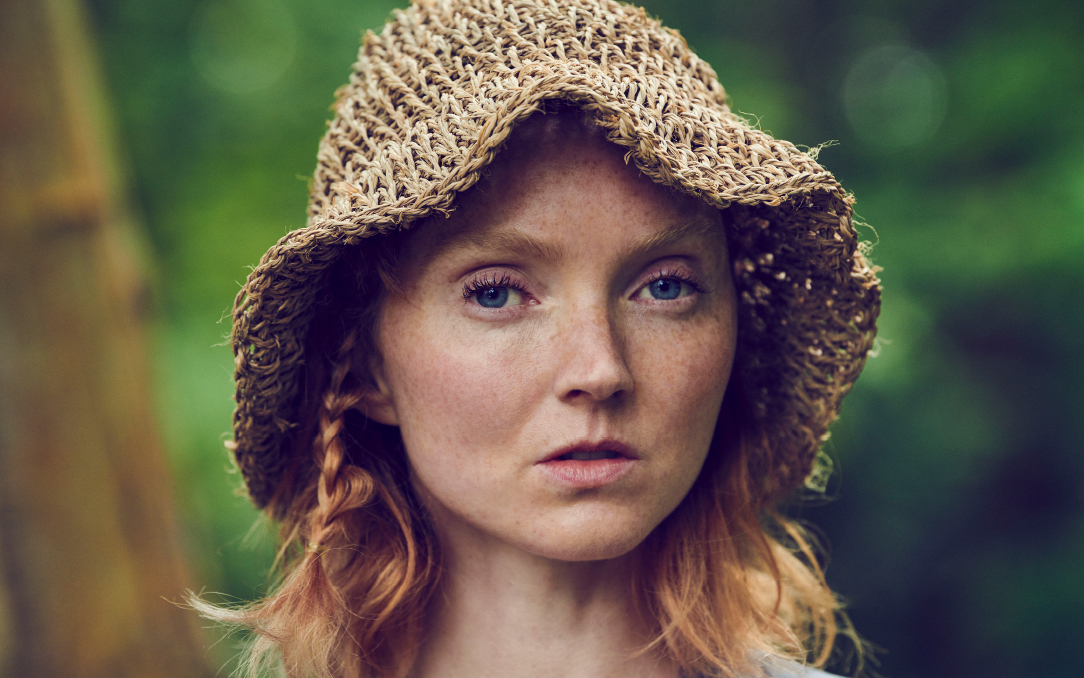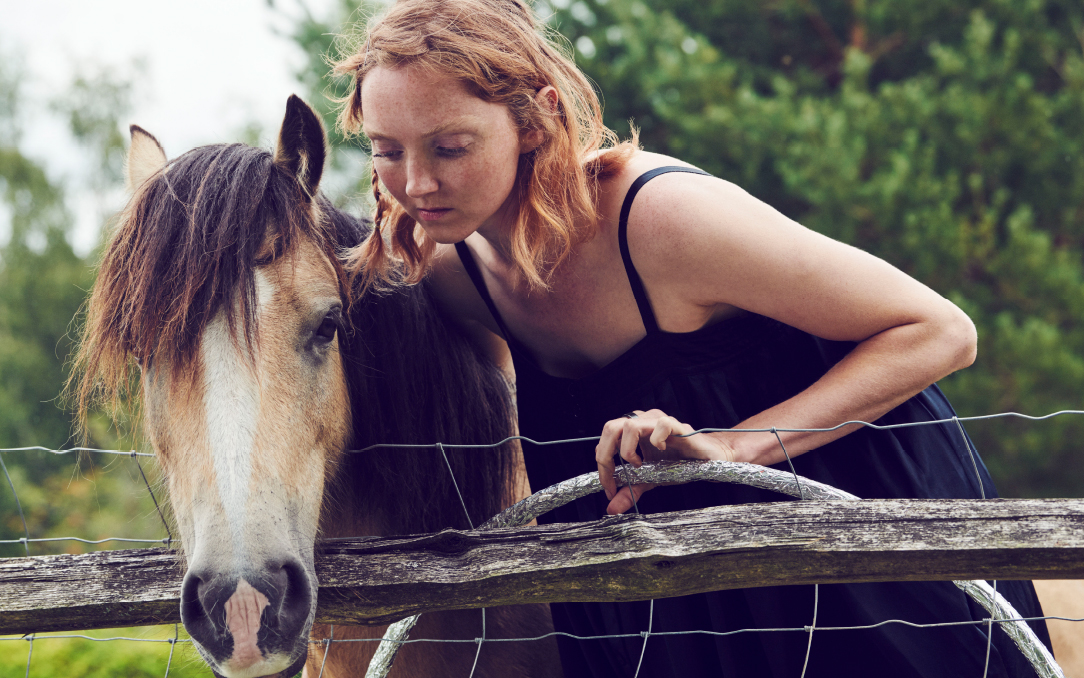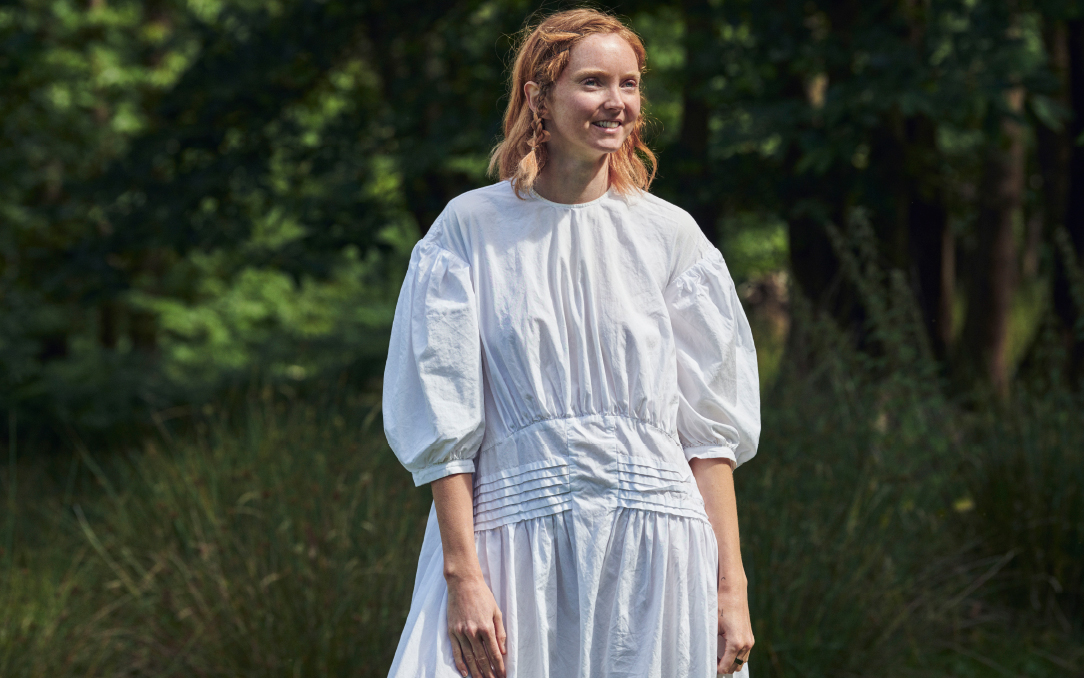6 things we learned about sustainability from our digital cover star Lily Cole
‘Everyone’s voice is important’


‘Everyone’s voice is important’
Lily Cole’s name is synonymous with sustainability, with the 32-year-old activist known to be vocal about environmental and humanitarian causes.
The model, actor, writer, entrepreneur, campaigner and mother was therefore the obvious choice to become our new digital cover star, as we launch our #StartSomewhere campaign.
#Startsomewhere aims to inform and inspire everyday changes that can help reduce our individual impact on the environment, calling on our readers to speak up.

This is something that Lily lives by, recently releasing her own book on activism, Who Cares Wins: Reasons for Optimism in Our Changing World.
‘The threat is getting bigger and the science is getting more scary and that is galvanising more action and waking people up,’ Lily explained in her cover interview with Marie Claire this week. ‘But that sucks, right? Because we had the science and data decades ago to take action. It's sad that it’s having to get so threatening before people wake up. That said, it has been really inspiring to see a mass movement around the environment rising up.’
So how can we be more environmentally conscious and bring about positive change?
Celebrity news, beauty, fashion advice, and fascinating features, delivered straight to your inbox!
Over the next week, our #StartSomewhere campaign will inform and inspire you, with features reminding us of our morals on plastic and practical articles explaining how we can rescue restaurant food with epic waste saving apps.
From making your beauty routine more sustainable and giving your office an eco-friendly makeover to the best online vintage clothing stores and tips on building a more sustainable wardrobe, we’ve got you covered.
Just as Lily explains, there is a long way to go, but there is also so much we can each do to progress the cause.

Here are 6 things we learned about sustainability from our new digital cover star…
1. Everyone’s voice is important
‘When I started getting a public profile through fashion I felt more responsibility to use that platform and voice to bring attention to different causes. That said, I think everyone’s voice is important – for somebody who doesn't have a public platform, their voice is just as important. Everyone should feel empowered to realise that.’
2. Protesting is a privilege
‘In terms of protest being a privilege, that's just the reality. There are countries where you could be killed for being gay. So the ability for people in our communities, where it is legal to provide a voice for others? That’s important. And those privileges, it’s recognised historically, have often been wrongly earned.’
3. Sustainability is fashionable
‘It’s become much more fashionable to be an activist, which is no bad thing. But at the beginning I remember my agent being worried about me: “Aren’t you scared you’re biting the hand that feeds you by critiquing the fashion industry?” And it did have some negative effects in terms of how I was viewed by certain people in the industry. But, that said, I don't think I really cared. What I was talking about was really important, so it was worth saying. The positive thing that has changed in the past 15 years is that the conversation around sustainability in fashion is no longer the niche, anti-fashion, hempy space it was perceived to be. It’s become much more mainstream and accessible.’
4. It’s OK to focus your activism
‘When I was younger and I was being approached by lots of different charities, I felt a lack of focus because all causes have compelling reasons to support them. I think I have that focus now and feel more at peace saying no. But on a day-to-day level, I do think all these problems are related. It’s the culture and system of hierarchising people historically; those hierarchical systems have created many different versions of oppression – whether it’s the oppression of disabled communities, ethnic minorities, non-white communities, women or the environment. Part of what I'm looking at in my book is the intersection between different types of injustice, because I don’t think we can solve any of the problems without trying to solve all of them.’
5. We can’t let this crisis go to waste
‘There's a possibility this crisis will give us the opportunity – personally, collectively and politically – to make big changes we wouldn't have thought possible a year ago. I think it has the capacity to play out in a very positive way, but there’s a lot of uncertainty and we've already seen negative side effects. I'm hopeful we won’t let a crisis go to waste though, as the saying goes.’
6. The younger generation can save us
‘Someone told me about this book called Ultimate Survival Guide For Kids. That gave me the heebie-jeebies because I want to fix these problems ourselves so we’re not creating this dystopian landscape for our children to navigate. That said, I’m 32 and already starting to see younger generations coming up with their own ideas. That feels really positive and I think it will be interesting to see how value systems shift with younger generations who have a fresh way of seeing the world. In my chapter on protest I refer to a Kahlil Gibran quote, in which he talks about children being the arrows that shoot off from our bows.’
Read Lily’s full cover interview on @MarieclaireUK.

Jenny Proudfoot is an award-winning journalist, specialising in lifestyle, culture, entertainment, international development and politics. After working at Marie Claire UK for seven years - rising from intern to Features Editor - she is now a freelance contributor to the News and Features section.
In 2021, Jenny was named as a winner on the PPA's '30 under 30' list, and was also listed as a rising star in journalism.